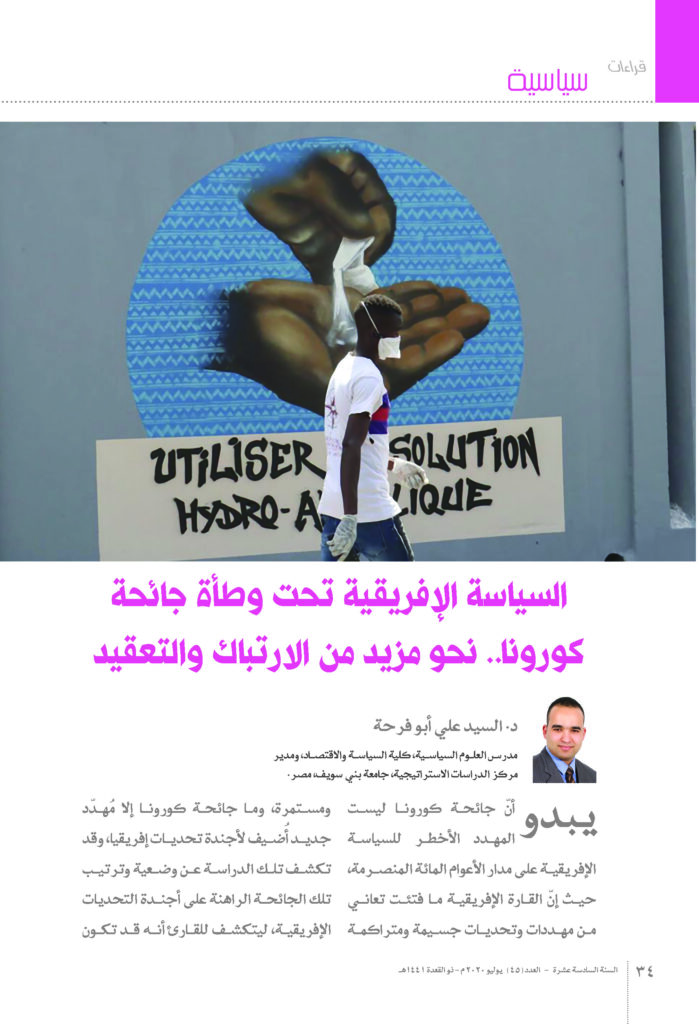Publisher: Qira’at Afriqiyah Magazine
Issue: 45, July 2020
ISSN: 2634-131X
Year : 16
Pages: 34-47
Author: Ph.D. Elsayed Ali Abofarha
Download pdf

- Abstract:
It seems that the Corona pandemic is not the most serious threat to African politics over the past hundred years, as the African continent has been suffering from grave, accumulated and persistent threats and challenges. The Corona pandemic has only been added to the agenda of Africa’s challenges, hence, this study aims to reveal the status and arrangement of this current pandemic on The agenda of the African challenges, to reveal to the reader that there may be challenges that have more impact and greater cost than that pandemic on the confused and complicated African reality. The researcher does not mean, in any case from his previous assumption, to underestimate the pandemic and its repercussions on the African continent, but assures the need to read it in light of the map of complex and interrelated challenges in African reality. Therefore, the importance of this study comes to examine the reality and future of the state and the politics in Africa under Pressure of that pandemic, by trying to answer a major question that: to what extent the Corona pandemic affected African politics? To answer this main question, the study details its following research questions with the aim of summarizing the answer to its main problems, and these research questions are as follows: – Why is the global epidemic called Corona described as a pandemic rather than a crisis or epidemic? – What are the most important features of the comparative situation of Africa on the global pandemic map? – Is there anything we can name as “African experience” in dealing with epidemics before the current pandemic? – What are the repercussions of the pandemic on African politics, especially in the areas related to the erosion of democracy and the legitimacy of the ruling regimes, government measures to confront it, civil society and opposition attitudes, and the future of African integration? – Finally, what are the features of the future of African politics in the post-Corona period? To address the problem of the study with analysis, and to answer its sub-questions, the researcher relies on a methodology that is considered appropriate and intended, which is based on the comparative method as a research tool, and the systems analysis approach for David Easton as a method, through researching the pandemic inputs and their repercussions on the African reality, examining the interactions that take place within these regimes, and finally, the future of these repercussions on the reality of politics in Africa in the wake of the pandemic.
